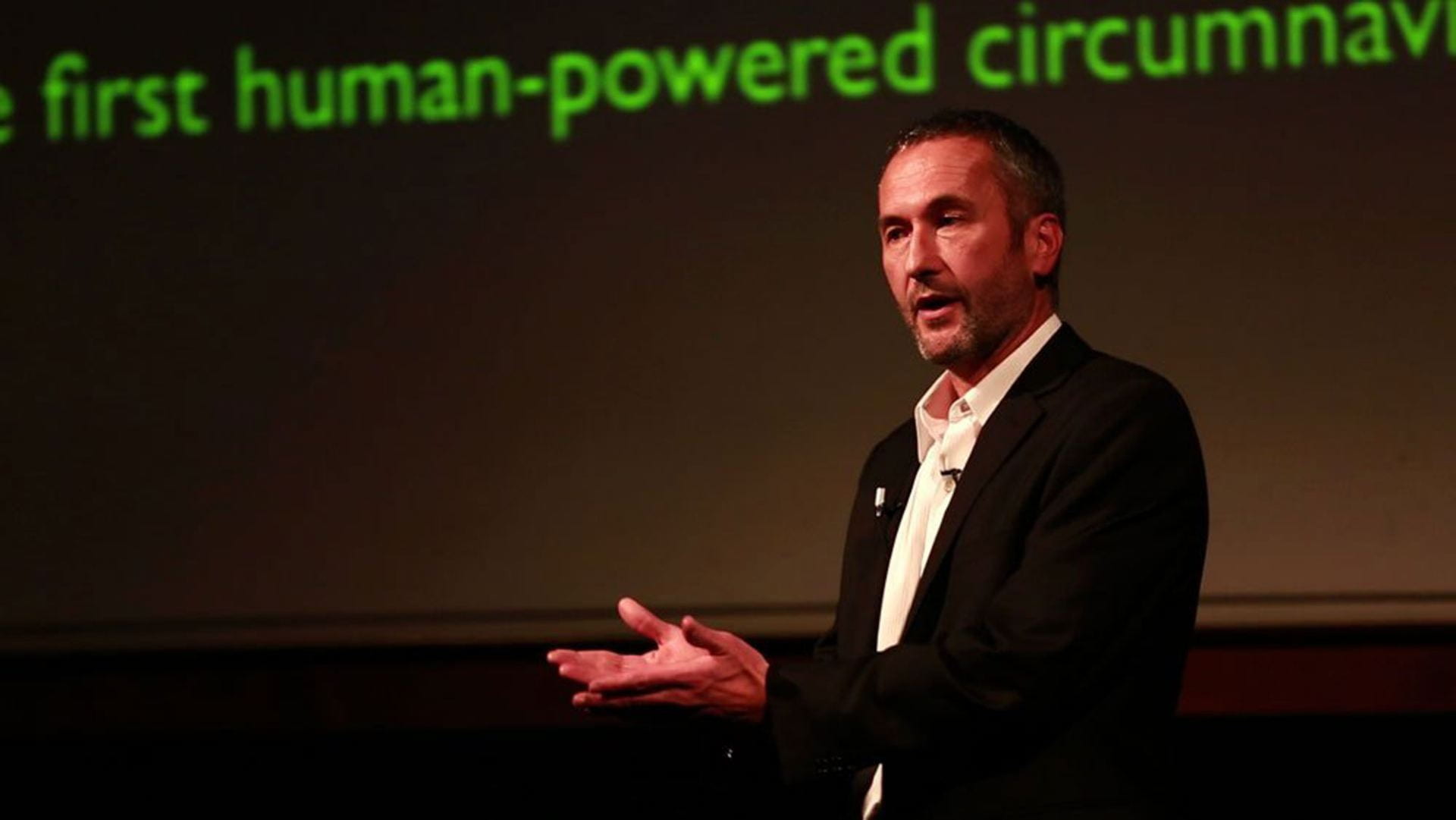I am an English student, originally from Birmingham, who loves blogging. You might also hear me on Siren radio or at a SingIt performance. In my spare time, I love travelling, reading and binge watching Netflix!

Great Lives talk: Jason Lewis
June 4, 2019,
read.
This article is more than 3 years old
The University has arranged a few Great Lives talks to inspire students. I went along to Jason Lewis’ to see what it was all about.
A bit of background might be useful before I delve into the specifics of the talk. Jason Lewis was the first person to use only human-power to circumnavigate the globe. As in, the whole world without a plane, car or cruise ship in sight. It took him 13 years…
I went with the Siren Radio team so we were let in early to meet Jason Lewis and his partner Tammie Stevens before the talk started. The first thing I noticed was how impassioned they both were and genuinely interested in everything I asked them. The lecture theatre started filling up, and soon there were a few hundred people eagerly awaiting Jason’s story. It was predominantly older people but, there was also a nice spattering of younger people to even out the audience demographic.
Jason began talking and commanded the room – he was incredibly devoted to his message. He started with a Mark Twain quote:
Travel is fatal to prejudice, bigotry, and narrow-mindedness, and many of our people need it sorely on these accounts. Broad, wholesome, charitable views of men and things cannot be acquired by vegetating in one little corner of the earth all one’s lifetime.
This premise was a predominant motivation for the trip, but it was Jason’s desire to raise awareness of Climate Change that pushed him to travel the world using manpower alone. He travelled the oceans in a boat that had space for one person to peddle whilst another navigated, packed with 150 days worth of food: including thousands of Mars bars! For 4500 miles, Jason and his fellow boat-peddler, Steve, traversed the Atlantic Ocean with only three prior days of sea experience. Which Jason himself saw as:
“The most stupid but the most liberating thing I’ve ever done.”
Jason was full of anecdotes of their time peddling the ocean, (including a lucky escape in which a huge wave tipped the boat almost vertical!) but the real struggle began when they reached America. He decided to roller-blade the 4000 miles across the country – a decision which resulted in him being hit by a car, shattering both of his legs. The recovery time was another obstacle to overcome, but he used this time as an opportunity to visit schools spreading his message that we need to invest in countermeasures for the effects of Climate Change.
The rest of Jason’s journey was spent pretty much alone, and it was only when strong currents negated each attempt to row forward for six weeks that he considered giving up. But the desire to raise awareness and help implement ecological change drove him forward. This section of the trip saw him cycle, spend four days in prison for crossing Egypt ‘illegally,’ and eventually return home by peddling up the Thames.
Along the way, Jason witnessed the need to ration and conserve water and electricity – a practice he thinks necessary to implement worldwide in order to combat the climate emergency. He sang the praises of the Extinction Rebellion and gave some tips for anyone hoping to make an individual change:
- Implement a plant-based diet as it requires less energy to produce.
- Take shorter showers or buy a low-flow shower-head.
- Air-dry laundry and layer clothes rather than turning the heating on.
- Boycott packaging, especially in supermarkets.
- Petition businesses to make changes.
- Peaceful protest.
Overall, it was a super interesting talk and I would recommend reading one of Jason’s three books that he’s written about the journey if you want to find out more. He was a very inspiring man and I for one have already implemented some of his suggestions; small-scale changes to make sure the Earth that we know and love sticks around for a bit longer!
- Topics
- Advice




